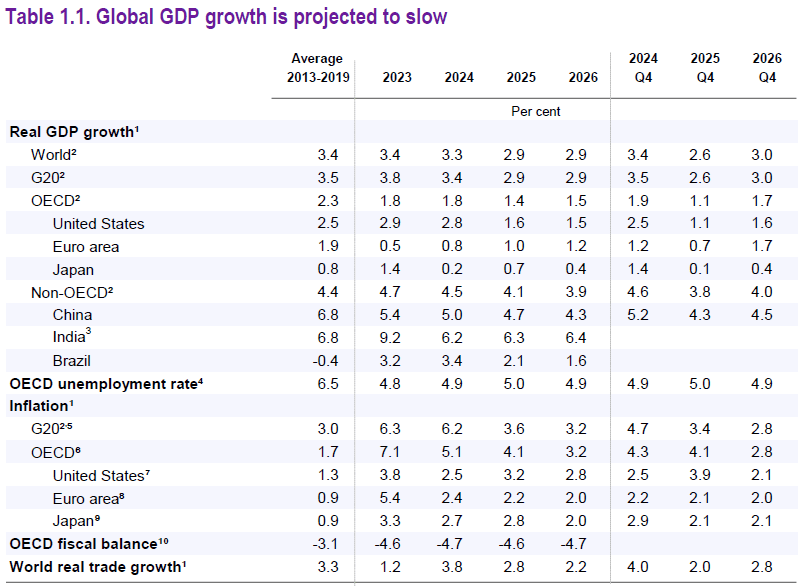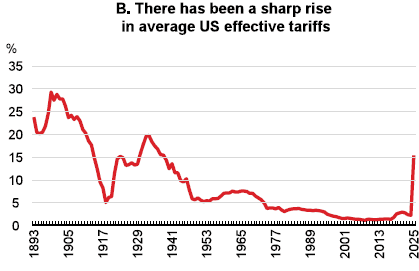MNI: OECD Cuts Global Outlook For 2nd Time This Yr On Tariffs
Global economic growth forecasts were trimmed by the OECD for the second time this year because of the U.S.-led global trade war, with the new report Tuesday saying tariffs are also making central banks delay interest rate cuts because of sticky inflation.
"Weakened economic prospects will be felt around the world, with almost no exception. Lower growth and less trade will hit incomes and slow job growth," chief economist Alvaro Pereira said in the report.
The Paris-based group now sees global growth at 2.9% this year and next. That's down from March when the forecast was reduced to 3.1% from 3.3% for this year, and to 3% from 3.3% for 2026.
The United States is among the hardest-hit by the dispute according to the OECD, with U.S. GDP set to expand just 1.1% in the fourth quarter versus a year earlier, and compared with 2.5% globally.
On an annual basis, U.S. growth will slow to 1.6% this year and 1.5% next year from 2.8% in 2024. For China, growth is forecast to ease to 4.7% this year from 5% in 2024, and then decelerate further to 4.3% in 2026. Other major U.S. trading partners Canada and Mexico also see a downshift in growth.
U.S. inflation is projected to quicken to 3.9% by the end of the year, forestalling any Fed rate cuts, the OECD said, at a time when other central banks outside of Japan must remain vigilant but are on track to provide stimulus. The report is based on data through May 27 and assumes "tariff rates as of mid-May are sustained despite ongoing legal challenges." (See MNI POLICY: Fed Cut Impetus Fades Alongisde Recession Fears)
"Taken together, the new tariffs introduced by the United States this year up to mid-May are estimated to have raised the (ex-ante) effective tariff rate on US merchandise imports to 15.4%, from just over 2% in 2024, taking it to the highest rate since 1938," the OECD said.
"Even though we are still forecasting that inflation will come down to central bank targets by 2026 in most countries, it will now take longer to reach those targets. In the countries more affected by tariffs, inflation might even rise first before coming down," the report said.

